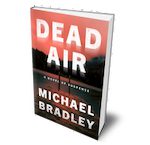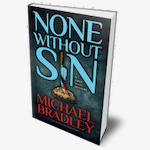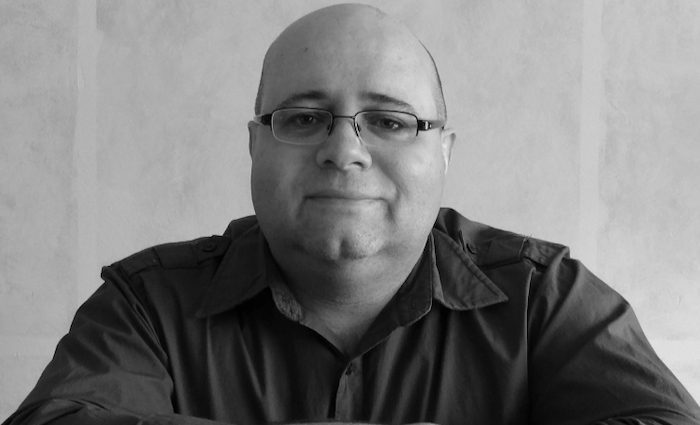I think that any good writer is emotionally challenged at some level.
Otherwise, how could we create and write about the emotionally damaged characters in our stories?
Readers expect authenticity in our characterizations. If we haven’t felt things like grief, anxiety, depression, love, and fear, then how can we create such authentic interpretations?
There is a Certain Degree of Relief I Get from Writing
It is hard to admit, but I’ve been through the gamut of challenging emotions during my writing career. I’ve struggled with self-doubt, always concerned that my writing is rubbish. I’ve been overwhelmed with anxiety over not achieving my weekly word count while writing my next novel.
And I’ve dealt with depression as another self-imposed deadline swooshes past.
But those emotions (along with a dozen others that often threaten to derail all my efforts) tend to make their way into my characters. It is a sort of symbolic way of purging myself of my deep-rooted neuroses . . . at least for a while.
Oddly, the writing, which can often be the source of those emotions, is also my way of ridding myself (if only momentarily) of those same emotions. There is a certain degree of relief that I get from writing.
My emotionally charged creativity tends to build up like a pressure cooker if I haven’t written in a few days. I get a little moody, a bit short-fused, a bit depressed. The writing is what brings things back into balance.
It also helps to have a loving and tolerant wife and two adorable dogs who are always there to give lots of sloppy kisses. The dogs with the sloppy kisses, not my wife.
The Best Way I’ve Found to Describe My ADD
Being someone who suffers from an attention deficit disorder, it is extremely challenging to stay focused, especially when writing.
It doesn’t take much to send me off into the rabbit hole of “doing anything but writing.” Even the smallest sound can derail a sentence, and God forbid if my eye should be caught by an unrelated link or YouTube video while I’m researching for my novel.
I’ve lost hours of precious writing time with any number of ridiculous tangents. And don’t get me started on trying to sit still for longer than an hour at a time.
The best way I’ve found to describe my ADD is to compare my mind to an Internet browser. I’ve got 19 tabs open, three of them are frozen, and I’ve got no idea where the music is coming from.
In many cases, I’ve had to build breaks into many aspects of my life, including my writing routine. Just getting up and walking around for a few minutes helps clear my mind of the myriad of thoughts that threaten to overwhelm me.
How My First Career in Radio Broadcasting Interfered with My Writing
I did a great deal of writing when I was in high school. All of it was absolute rubbish. I knew nothing about writing plot, dialogue, or characterization.
But what I did know was that I wanted to be a writer. I had that creative urge early in my life.
Sadly, my first career in radio broadcasting interfered with my writing. It became an alternative outlet for my creativity, and eventually it overtook the writing, which fell to the wayside.
It was long time before I found my words again. But when I did, I discovered a wealth of characters from my days in broadcasting.
But…What Radio Broadcasting Taught Me
It turns out I met a great deal of people in those eight to nine years that made an impression on me. I’ve pulled many character traits from individuals from my broadcast days, and even a few antidotes from some of my crazier experiences have made it into my novels.
Thinking ahead to what I’d say at the next break in radio isn’t much different than thinking ahead to what I’m going to write on the next page. Broadcasting taught me the importance of being prepared.
Otherwise, you end up with dead air . . . which, incidentally, was the name of my third novel.
The Secret to Writing a Good Mystery or Suspense Novel
The secret to writing a good mystery or suspense novel is hooking the reader very early in the book, usually somewhere in the first chapter if possible.
In some of my early writing (pre-publication days), I spent pages and pages building up to the first crime. But I soon realized it was better to start in the middle of the action, either as the first crime was happening or immediately after.
The book hits the ground running, and if written right, doesn’t stop until the end. The narrative momentum needs to be in constant motion from the very first page. The pacing quickens the closer the plot moves towards the climax and the closer the main character gets to solving the crime.
And as important as clues are to a good mystery, red herrings are just as important. If you want to see an excellent use of red herrings, read Agatha Christie’s And Then There Were None.
My Inspiration for Finding Time to Write
Finding the time to write is probably the most challenging element of my writing career.
Not only do I have a full-time job, but I’m also taking online college classes part-time. That doesn’t leave much time for writing. As you can imagine, I don’t have much free time in my life right now.
I’ve had to be creative with a very strict schedule for myself just to keep on top of everything. Even with that, I’ve not invested as much time to writing as I would like.
A few years ago, I heard New York Times bestselling author Lisa Unger say, “if you aren’t creative enough to find time to write, you aren’t creative enough to write.”
That really hit home for me, and since then I’ve been much more hesitant to give up a writing night without a fight.
Advice for a Young Writer: Keep Writing
A few years ago, I had the opportunity to visit my old high school and speak with a group of creative writing students.
I spent forty-five minutes answering some incredible questions from a new generation of writers. Near the end, one of the students asked what was the most important piece of advice I could give them.
I said only two words: Keep writing. I went on to explain how I had stopped writing for more than twenty years after leaving high school. Who knows how many books I could’ve written in that time? It’s become one of my biggest regrets.
If writing is truly a passion, then don’t stop writing. Don’t ever stop writing.
* * *
Michael Bradley is an award-winning author from Delaware. He spent eight years as a radio DJ “on the air” before realizing he needed a real job and turned to IT.
Never one to waste an experience, he uses his familiarity with life on the radio for many of his suspense novels. His third novel, DEAD AIR (2020), won the Foreword INDIES Award and the IBPA Benjamin Franklin Award. The novel has been called “absorbing and filled with shocking twists.” His new novel, NONE WITHOUT SIN is coming in July of 2022.
For more information on Michael and his work, please see his website and connect with him on Twitter, Facebook, and Instagram.
 Dead Air: Three can keep a secret, but only if two are dead.
Dead Air: Three can keep a secret, but only if two are dead.
No one knows that better than Kaitlyn Ashe, who has been running from a childhood secret her whole life. Until now.
Crowned the top-rated radio DJ in Philadelphia, she is finally ready to settle down with her lawyer fiancée and a whole new set of friends who know nothing about her past. When she suddenly receives anonymous letters threatening her, she realizes that someone out there knows. But who? Isn’t her secret buried with the dead?
When the threats reveal murderous intent, Kaitlyn has no choice but to trust Detective Rodney Shapiro as her life spirals toward a reunion in the one place she’d hoped to never visit again: The Shallows.
From the Philadelphia skyline to the rural suburbs of New Jersey, Dead Air weaves a suspenseful tale of past misdeeds and present murderous instincts as Kaitlyn plays a game of cat and mouse with a mysterious killer who stops at nothing to get revenge.
Available at Barnes & Noble, Amazon, and wherever books are sold.
 None Without Sin: Everyone has secrets. Some of them may kill you.
None Without Sin: Everyone has secrets. Some of them may kill you.
When a Delaware real estate mogul is murdered, newspaper journalist Brian Wilder wants the scoop on the killing, including the meaning behind the mysterious loaf of bread left with the corpse. Reverend Candice Miller, called to minister to the grieving family, quickly realizes that the killer has adopted the symbolism of sin eating, a Victorian-era religious ritual, as a calling card. Is it the work of a religious fanatic set to punish people for their missteps, or something even more sinister?
As more victims fall, Brian and Candice follow a trail of deceit and blackmail, hoping to discover the identity of the killer—and praying that their own sins won’t catch the killer’s attention.
Available at CamCat Books, Amazon, and wherever books are sold.

